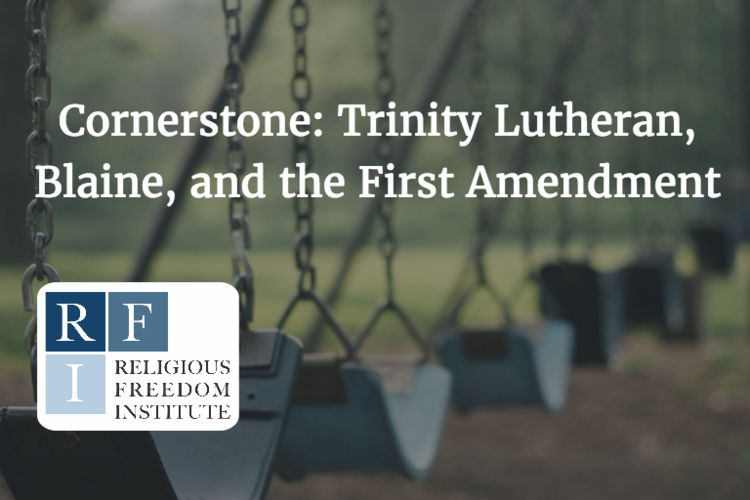
On June 26, the Supreme Court held 7-2 that the Missouri Department of Natural Resources violated the First Amendment’s free-exercise guarantee when it deemed Trinity Lutheran Church categorically ineligible to receive a grant under Missouri’s Scrap Tire Program simply because it is a church.
Trinity Lutheran’s Child Learning Center ranked fifth among 44 competing applicants for grants to purchase playground surfaces made from recycled tires, improving playground safety and increasing recycling. Seven grants were awarded, but Trinity Lutheran’s application was denied.
The Department of Natural Resources asserted this denial was required by a provision of the Missouri constitution directing that “no money shall ever be taken from the public treasury, directly or indirectly, in aid of any church, sect or denomination of religion.” This and similar provisions in 37 other states are known as Blaine Amendments.
The Trinity Lutheran decision, however, strongly suggests that the Court may be likely to conclude other applications of Blaine amendments violate the First Amendment.
In this series of articles, we asked authors to consider the implications of the Court’s ruling are for other applications of Blaine Amendments and similar state-law restrictions.
Is this likely to impact other religious entities, including those that are not strictly speaking a “church, sect or denomination of religion” such as faith-based hospitals, schools, or social-service providers (homeless shelters, elder-care homes, adoption providers, etc.)? What are the broader implications, if any, for American democracy, the free exercise of religion, and the constitutional ban on establishments of religion?
THE RFI BLOG

Is Egypt’s Government Trying To Take Over Christianity’s Most Important Monastery?

Does Southeast Asia Lead the World in Human Flourishing?

RFI Leads Training Session on Religious Freedom Law and Policy for U.S. Army War College

Oral Argument in Charter School Case Highlights Unconstitutional Motives Behind OK Attorney General’s Establishment Clause Claim

Largest Longitudinal Study of Human Flourishing Ever Shows Religion’s Importance
CORNERSTONE FORUM

Reaffirming Religious Freedom: Bridging U.S. Advocacy and Iraq’s Constitutional Framework

Political Polarization, Same-Sex Marriage and Religious Liberty

Bridging the Gap Between International Efforts and Local Realities: Advancing Religious Freedom in the MENA Region

Challenges to Religious Freedom in Iraq and the Critical Need for Action

